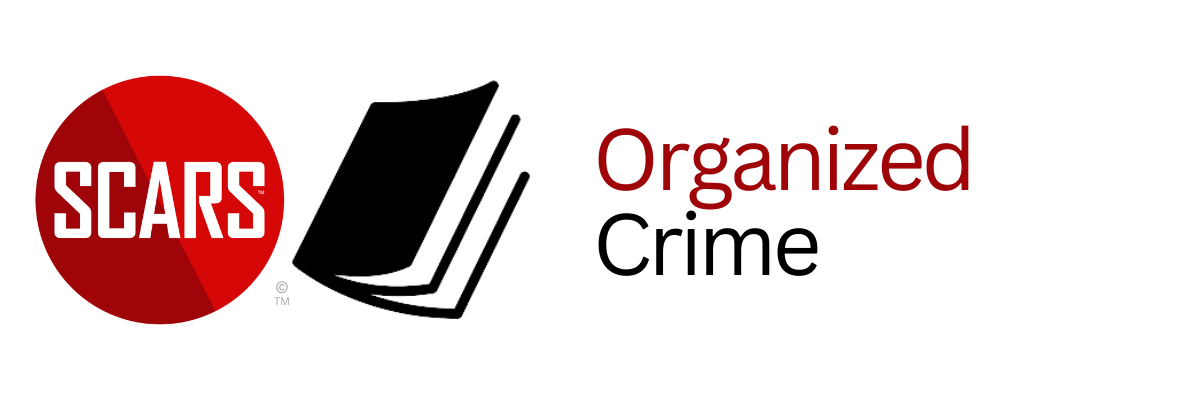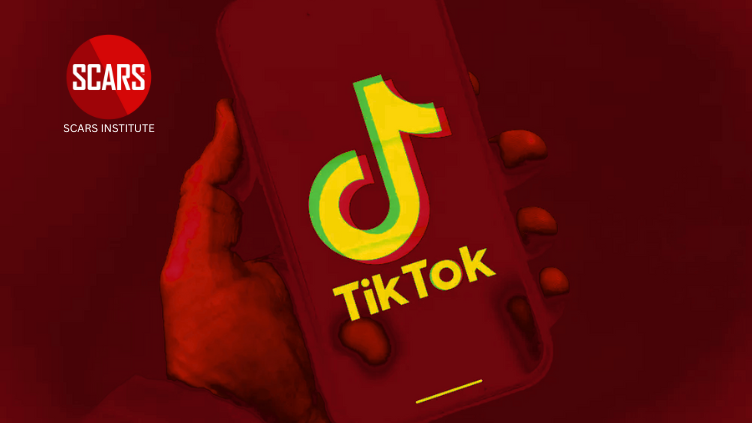UNODC: Southeast Asian Cyberfraud Organizations Deploying New Technology
United Nations Issues Warning About Expanding Organized Crime
Primary Category: Organized Crime
Authors:
• SCARS Editorial Team – Society of Citizens Against Relationship Scams Inc.
• United Nations Office of Drugs and Crime
About This Article
Industrial-scale cyberfraud operations in Southeast Asia are evolving rapidly due to technological advancements and the increasing professionalization of transnational criminal networks. These operations, often linked to sophisticated underground banking and money laundering organizations, are outpacing governmental efforts to contain them.
A recent UN Office on Drugs and Crime (UNODC) meeting highlighted the urgency of addressing this threat, which includes hundreds of scam centers and thousands of trafficked individuals working in illicit industries. Countries like the Philippines have banned certain gambling sectors to curb these activities. Despite efforts to dismantle cyber-enabled fraud operations, organized crime groups are diversifying and moving into more remote areas, utilizing deepfakes and malware.
The UNODC is promoting regional cooperation and intelligence sharing to combat these threats, acknowledging that traditional law enforcement methods alone are insufficient. The establishment of an informal network and an emergency response network are key components of UNODC’s strategy to address this growing issue.

Cyberfraud Syndicates Observed Deploying New Tech and Expanding Capabilities Amidst Shifting Threat Landscape in Southeast Asia, UNODC Officials Warn
Industrial-scale cyberfraud operations are evolving against a backdrop of technological innovation and the increasing professionalization of transnational criminal networks across Southeast Asia, officials warn. The operations, run by transnational organized crime, are heavily linked to sophisticated underground banking and money laundering organizations that have proliferated throughout the region. In a meeting organized last week by the UN Office on Drugs and Crime in Bangkok, investigators and analysts from across East and Southeast Asia shared intelligence on how the situation is evolving and rapidly outpacing governments’ capacity to contain it.
It is the second time over the past year that UNODC has brought together investigators to find ways of disrupting powerful criminal networks.
“Organized crime groups are converging where they see vulnerabilities, and empowering the region’s investigators and analysts is central to UNODC’s strategy to disrupt these bad actors moving forward,” said Masood Karimipour, UNODC Regional Representative for Southeast Asia and the Pacific. “It is more critical than ever for governments to recognize the severity, scale and reach of this truly global threat, and to prioritize solutions that address the rapidly evolving criminal ecosystem in the region,” he added.
The two-day closed-door meeting brought together officials from Canada, Cambodia, Indonesia, Japan, the Republic of Korea, Malaysia, the Philippines, Singapore, Thailand, the United States, and Viet Nam, as well as UNODC experts, to share operational outcomes, intelligence, and take stock of the shifting regional threat landscape.
Hundreds of so-called ‘scam centers’ have been identified by authorities across Southeast Asia in recent years. Thousands of people have been trafficked into the lucrative illicit industry for work, and many more have lost billions to sophisticated fraud schemes orchestrated by a growing number of criminal groups who have made the region their base of operations.
“There are several necessary preconditions to strengthen countermeasures against cross-border online fraud needed at the regional level,” said Ishii Keisuke, Counselor for the Commissioner General’s Secretariat in Charge of Measures Against Telecommunication Fraud and Organized Crime at the National Policy Agency of Japan. “We need to share information and intelligence, improve our ability to trace and recover crypto-assets and e-money, and foster a mutual understanding of the differences between our respective legal and criminal justice systems for swift and seamless investigative cooperation. UNODC, as a politically neutral institution, plays an important role as an intelligence hub among countries in the region, providing crucial analysis and a platform for intelligence exchange.”
In the Philippines alone, more than 400 of these criminal enterprises are presently estimated to be in operation, with many Philippines offshore online gambling operators (POGOs) found serving as fronts for transnational organized crime groups, leading to the recent ban of the sector under Presidential order.
Similar measures have been taken elsewhere in the region, including in Cambodia, Indonesia as well as Thailand where dismantling cyber-enabled fraud and illegal online casino operations has been declared a national priority.
As law enforcement and regulators step up their efforts, organized crime continues to diversify operations into more remote parts of the region, such as autonomous territories controlled by non-state armed groups and other criminal hubs in and around the Golden Triangle. Ongoing pressure is also likely to motivate criminal groups to further innovate and move deeper into more vulnerable parts of Southeast Asia.
“Cyber-enabled fraud perpetrated by powerful transnational criminal networks has evolved into a thriving multi-billion-dollar illicit industry that now exceeds the GDP of several countries in Southeast Asia combined,” said John Wojcik, UNODC Regional Analyst. “It’s clear that the regional threat landscape is shifting fast, with a growing indication of deepfakes and malware being integrated into these operations alongside a direct convergence with illegal online gambling and the regional drug trade – but awareness is also improving,” Wojcik added. “Governments are realizing that this is not a situation they are going to be able to investigate or prosecute their way out of, and that the region cannot afford to let business continue as usual.”
The meeting of regional investigators and analysts has led to the formation of an informal network to expand cooperation and share operational outcomes and expedite intelligence exchange in the region. It represents a key component in UNODC’s regional response under the latest strategic plan to address transnational organized crime and trafficking in persons associated with casinos and cyber-enabled fraud operations in Southeast Asia. Other efforts include the establishment earlier this year of an emergency response network that is currently being led by UNODC.
UNODC continues to coordinate with regional authorities across East and Southeast Asia to intensify these and other efforts. Follow-up meetings and activities are scheduled to take place in the coming months alongside a major threat analysis informed by the regional meeting.
Click here to read UNODC’s Threat Analysis on casinos, money laundering, underground banking, and transnational organized crime in East and Southeast Asia.
Click here to read UNODC’s Policy Report on casinos, cyber fraud, and trafficking in persons for forced criminality in Southeast Asia.
Click here to learn more about UNODC’s Regional Programme.
Click here to learn more about UNODC’s Regional Programme and work on cybercrime
Click here to learn more about UNODC’s work to address human trafficking in the region.
-/ 30 /-
What do you think about this?
Please share your thoughts in a comment below!
Statement About Victim Blaming
SCARS Institute articles examine different aspects of the scam victim experience, as well as those who may have been secondary victims. This work focuses on understanding victimization through the science of victimology, including common psychological and behavioral responses. The purpose is to help victims and survivors understand why these crimes occurred, reduce shame and self-blame, strengthen recovery programs and victim opportunities, and lower the risk of future victimization.
At times, these discussions may sound uncomfortable, overwhelming, or may be mistaken for blame. They are not. Scam victims are never blamed. Our goal is to explain the mechanisms of deception and the human responses that scammers exploit, and the processes that occur after the scam ends, so victims can better understand what happened to them and why it felt convincing at the time, and what the path looks like going forward.
Articles that address the psychology, neurology, physiology, and other characteristics of scams and the victim experience recognize that all people share cognitive and emotional traits that can be manipulated under the right conditions. These characteristics are not flaws. They are normal human functions that criminals deliberately exploit. Victims typically have little awareness of these mechanisms while a scam is unfolding and a very limited ability to control them. Awareness often comes only after the harm has occurred.
By explaining these processes, these articles help victims make sense of their experiences, understand common post-scam reactions, and identify ways to protect themselves moving forward. This knowledge supports recovery by replacing confusion and self-blame with clarity, context, and self-compassion.
Additional educational material on these topics is available at ScamPsychology.org – ScamsNOW.com and other SCARS Institute websites.
-/ 30 /-
What do you think about this?
Please share your thoughts in a comment below!
Important Information for New Scam Victims
- Please visit www.ScamVictimsSupport.org – a SCARS Website for New Scam Victims & Sextortion Victims.
- SCARS Institute now offers its free, safe, and private Scam Survivor’s Support Community at www.SCARScommunity.org – this is not on a social media platform, it is our own safe & secure platform created by the SCARS Institute especially for scam victims & survivors.
- SCARS Institute now offers a free recovery learning program at www.SCARSeducation.org.
- Please visit www.ScamPsychology.org – to more fully understand the psychological concepts involved in scams and scam victim recovery.
If you are looking for local trauma counselors, please visit counseling.AgainstScams.org
If you need to speak with someone now, you can dial 988 or find phone numbers for crisis hotlines all around the world here: www.opencounseling.com/suicide-hotlines
Statement About Victim Blaming
Some of our articles discuss various aspects of victims. This is both about better understanding victims (the science of victimology) and their behaviors and psychology. This helps us to educate victims/survivors about why these crimes happened and not to blame themselves, better develop recovery programs, and help victims avoid scams in the future. At times, this may sound like blaming the victim, but it does not blame scam victims; we are simply explaining the hows and whys of the experience victims have.
These articles, about the Psychology of Scams or Victim Psychology – meaning that all humans have psychological or cognitive characteristics in common that can either be exploited or work against us – help us all to understand the unique challenges victims face before, during, and after scams, fraud, or cybercrimes. These sometimes talk about some of the vulnerabilities the scammers exploit. Victims rarely have control of them or are even aware of them, until something like a scam happens, and then they can learn how their mind works and how to overcome these mechanisms.
Articles like these help victims and others understand these processes and how to help prevent them from being exploited again or to help them recover more easily by understanding their post-scam behaviors. Learn more about the Psychology of Scams at www.ScamPsychology.org
SCARS INSTITUTE RESOURCES:
If You Have Been Victimized By A Scam Or Cybercrime
♦ If you are a victim of scams, go to www.ScamVictimsSupport.org for real knowledge and help
♦ SCARS Institute now offers its free, safe, and private Scam Survivor’s Support Community at www.SCARScommunity.org/register – this is not on a social media platform, it is our own safe & secure platform created by the SCARS Institute especially for scam victims & survivors.
♦ Enroll in SCARS Scam Survivor’s School now at www.SCARSeducation.org
♦ To report criminals, visit https://reporting.AgainstScams.org – we will NEVER give your data to money recovery companies like some do!
♦ Follow us and find our podcasts, webinars, and helpful videos on YouTube: https://www.youtube.com/@RomancescamsNowcom
♦ Learn about the Psychology of Scams at www.ScamPsychology.org
♦ Dig deeper into the reality of scams, fraud, and cybercrime at www.ScamsNOW.com and www.RomanceScamsNOW.com
♦ Scam Survivor’s Stories: www.ScamSurvivorStories.org
♦ For Scam Victim Advocates visit www.ScamVictimsAdvocates.org
♦ See more scammer photos on www.ScammerPhotos.com
You can also find the SCARS Institute’s knowledge and information on Facebook, Instagram, X, LinkedIn, and TruthSocial
Psychology Disclaimer:
All articles about psychology and the human brain on this website are for information & education only
The information provided in this and other SCARS articles are intended for educational and self-help purposes only and should not be construed as a substitute for professional therapy or counseling.
Note about Mindfulness: Mindfulness practices have the potential to create psychological distress for some individuals. Please consult a mental health professional or experienced meditation instructor for guidance should you encounter difficulties.
While any self-help techniques outlined herein may be beneficial for scam victims seeking to recover from their experience and move towards recovery, it is important to consult with a qualified mental health professional before initiating any course of action. Each individual’s experience and needs are unique, and what works for one person may not be suitable for another.
Additionally, any approach may not be appropriate for individuals with certain pre-existing mental health conditions or trauma histories. It is advisable to seek guidance from a licensed therapist or counselor who can provide personalized support, guidance, and treatment tailored to your specific needs.
If you are experiencing significant distress or emotional difficulties related to a scam or other traumatic event, please consult your doctor or mental health provider for appropriate care and support.
Also read our SCARS Institute Statement about Professional Care for Scam Victims – click here
If you are in crisis, feeling desperate, or in despair, please call 988 or your local crisis hotline – international numbers here.
More ScamsNOW.com Articles
A Question of Trust
At the SCARS Institute, we invite you to do your own research on the topics we speak about and publish. Our team investigates the subject being discussed, especially when it comes to understanding the scam victims-survivors’ experience. You can do Google searches, but in many cases, you will have to wade through scientific papers and studies. However, remember that biases and perspectives matter and influence the outcome. Regardless, we encourage you to explore these topics as thoroughly as you can for your own awareness.















![NavyLogo@4x-81[1] UNODC: Southeast Asian Cyberfraud Organizations Deploying New Technology - 2024](https://scamsnow.com/wp-content/uploads/2025/04/NavyLogo@4x-811.png)









![scars-institute[1] UNODC: Southeast Asian Cyberfraud Organizations Deploying New Technology - 2024](https://scamsnow.com/wp-content/uploads/2025/04/scars-institute1.png)

![niprc1.png1_-150×1501-1[1] UNODC: Southeast Asian Cyberfraud Organizations Deploying New Technology - 2024](https://scamsnow.com/wp-content/uploads/2025/04/niprc1.png1_-150x1501-11.webp)